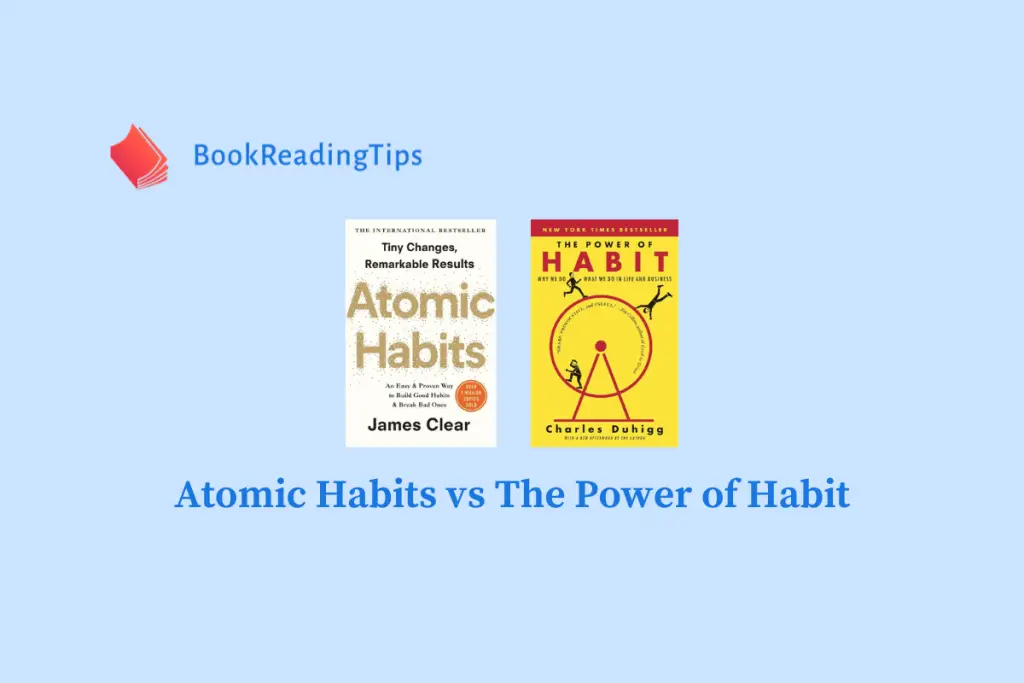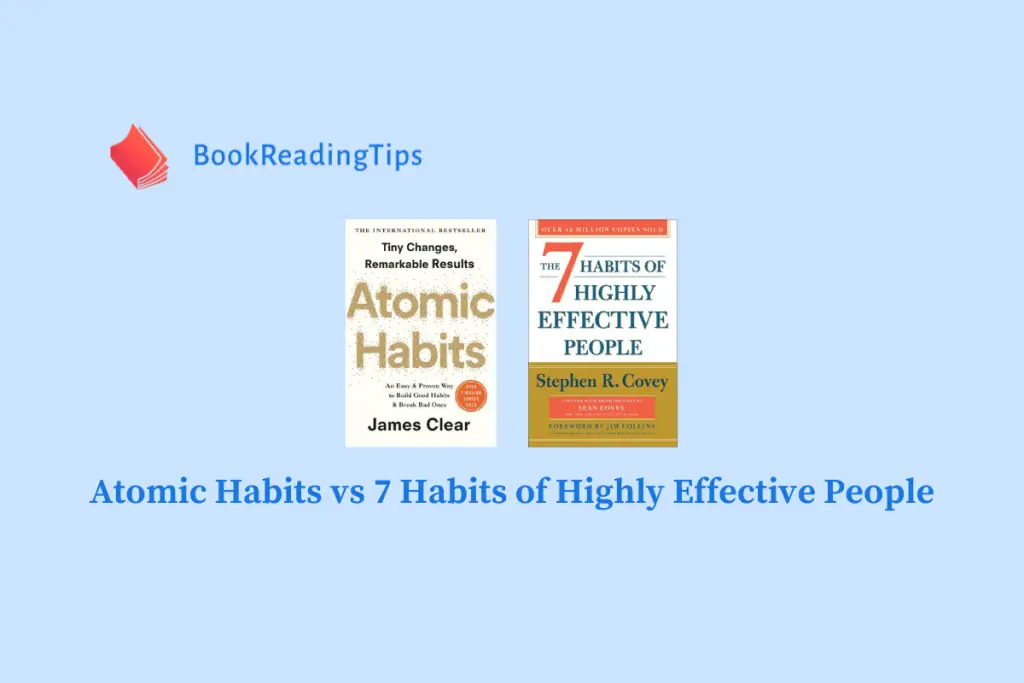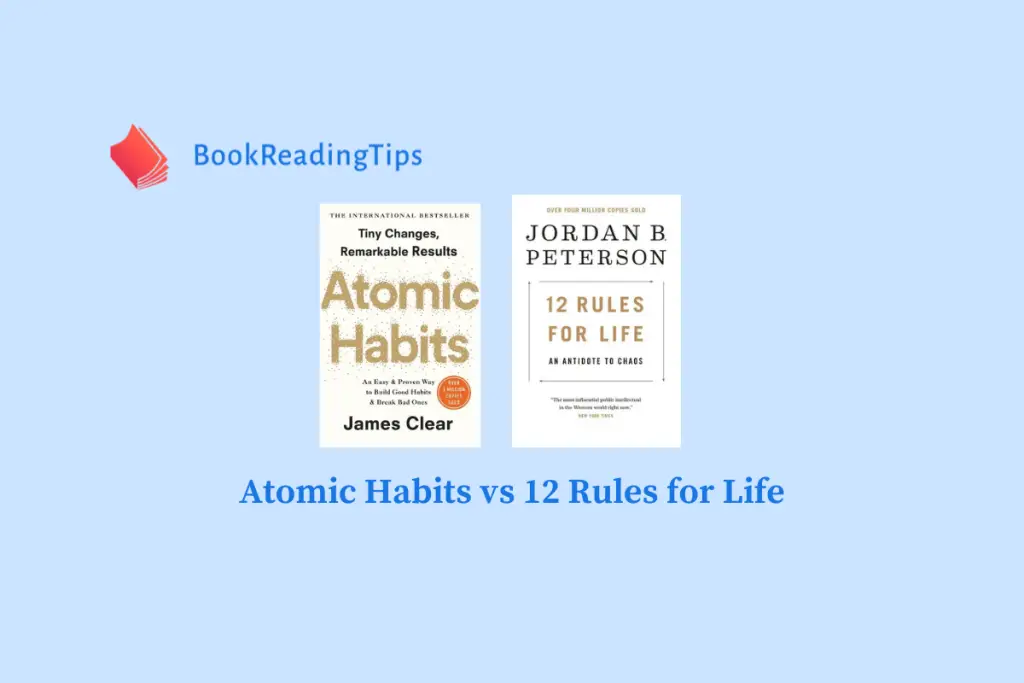In the world of self-help and personal development literature, two books have made quite a splash: “Atomic Habits” by James Clear and “Make Your Bed” by Admiral William H. McRaven. “Atomic Habits,” as the title suggests, delves into the power of tiny, everyday habits and how they can lead to remarkable results. On the other hand, “Make Your Bed” is a collection of life lessons learned in the military, with the underlying premise that accomplishing the first task of the day, such as making your bed, can lead to a sense of pride and encourage one to complete other tasks throughout the day.
While both books aim to guide readers toward self-improvement, they approach the topic from different angles. “Atomic Habits” is more scientific, backed by research, and offers a detailed, step-by-step guide on how to form good habits and break bad ones. It is ideal for those who appreciate a systematic, evidence-based approach to personal development. “Make Your Bed,” however, is more anecdotal. It is filled with inspiring stories and practical wisdom from a military perspective. It’s perfect for those who are motivated by real-life experiences, and those who enjoy a more narrative style.
In my opinion, both books offer valuable insights and practical advice. They may approach the topic differently, but the end goal is the same – to help readers lead more productive, fulfilling lives. In the following sections, I will delve deeper into each book, exploring their key concepts, strengths, and how they can be applied to our daily lives. Whether you’re a fan of habit-based strategies or believe in the power of completing simple tasks, there’s something to learn from both “Atomic Habits” and “Make Your Bed.” So, let’s take a closer look.
Table of Contents
- Unveiling the Core Principles of “Atomic Habits”
- Delving Into the Principles of “Make Your Bed”
- Similarities & Differences Between Both Books
- FAQs
- 1. What is the main difference between Atomic Habits and Make Your Bed?
- 2. Which book is more practical for everyday application?
- 3. Can these books be read by any age group?
- 4. Which book is more focused on personal development?
- 5. Is one book shorter or easier to read than the other?
- 6. Which book is more motivational?
- Conclusion
Unveiling the Core Principles of “Atomic Habits”
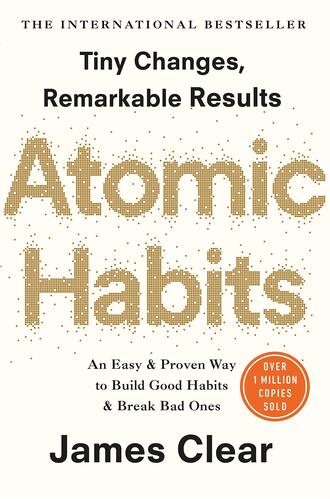
i. Embracing Small Changes
In my opinion, the key message of “Atomic Habits” by James Clear is the power of small, incremental changes. Clear emphasizes that we often underestimate the power of tiny adjustments in our daily routines. He argues that it’s not about making radical changes overnight but rather about focusing on making 1% improvements every day. This, he believes, can lead to significant transformations in the long run.
ii. The Habit Loop
Another fundamental principle that Clear introduces is the concept of the ‘Habit Loop,’ which consists of four stages: cue, craving, response, and reward. This loop is a cycle that our brains go through when forming and executing habits. By understanding this loop, Clear suggests we can manipulate our habits to serve our goals better.
iii. Identity-Based Habits
One aspect of “Atomic Habits” that I find particularly compelling is the idea of identity-based habits. Clear argues that successful habit formation is not just about what you want to achieve, but who you want to become. Instead of focusing on outcomes, we should focus on aligning our habits with our desired identity. This shift in perspective, I feel, is a game-changer in how we approach habit formation.
Delving Into the Principles of “Make Your Bed”
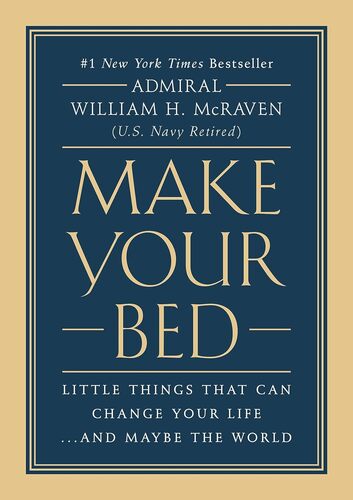
i. Start Your Day With a Task Completed
“Make Your Bed” by Admiral William H. McRaven offers a different perspective on habits and success. McRaven emphasizes the importance of starting your day with a task completed – such as making your bed. This simple act, he argues, provides a sense of pride and encourages you to accomplish more tasks throughout the day. It’s a small win that sets the tone for the rest of the day.
ii. Don’t Be Afraid of Failing
Another principle that McRaven highlights is the importance of embracing failure. He shares that during his Navy SEAL training, he learned that failure is not just accepted but often necessary for growth. The key is not to be afraid of failing but to learn from these failures and keep moving forward. This, in my opinion, is a powerful message that resonates beyond the military context.
iii. Power of Hope
Lastly, McRaven talks about the power of hope. He argues that in challenging situations, it’s crucial to maintain hope and believe that things will get better. This principle, I think, is not just about staying positive but about fostering resilience. In the face of adversity, it’s our ability to remain hopeful that can carry us through.
Both “Atomic Habits” and “Make Your Bed” offer valuable insights into habit formation and personal growth. While they approach the topic from different angles, both books underscore the power of small actions and the importance of perseverance.
Similarities & Differences Between Both Books
Similarities
Both “Atomic Habits” by James Clear and “Make Your Bed” by Admiral William H. McRaven are self-help books that focus on personal development and growth. They serve as guides to achieving success in life, albeit through different approaches.
In both books, the authors emphasize the importance of small, daily actions. Clear, in “Atomic Habits,” argues that tiny changes in habits can lead to remarkable results over time. Similarly, McRaven, in “Make Your Bed,” suggests that simple tasks like making your bed every morning can set the tone for a productive and organized day.
These books share a common belief in the power of consistency. They both underline the idea that success is not the result of massive, one-time actions, but rather the accumulation of small, repeated actions over time. In my opinion, this perspective is both empowering and practical, as it makes the journey to success seem more achievable and less daunting.
Differences
Despite these similarities, “Atomic Habits” and “Make Your Bed” differ significantly in their approach and content.
“Atomic Habits” is a more scientific and systematic exploration of the power of habits. Clear provides a detailed framework for building good habits and breaking bad ones, supported by insights from behavioral science. I think this makes the book more analytical and instructional.
On the other hand, “Make Your Bed” is more anecdotal and inspirational. McRaven draws from his experiences as a Navy Seal to provide life lessons and principles. The book is filled with personal stories and examples, which I feel makes it more relatable and engaging.
Furthermore, while “Atomic Habits” focuses on habits in a broad sense, “Make Your Bed” specifically targets daily routines and discipline. The former provides a comprehensive guide to habit formation, while the latter emphasizes the importance of discipline and order in achieving success.
In conclusion, both “Atomic Habits” and “Make Your Bed” offer valuable insights into personal development and success. However, they do so through different lenses, making them complementary reads for anyone interested in self-improvement.
FAQs
1. What is the main difference between Atomic Habits and Make Your Bed?
Atomic Habits, written by James Clear, focuses on the power of small, daily habits and how they can lead to remarkable results. It’s about making tiny changes that will lead to big outcomes. On the other hand, Make Your Bed by Admiral William H. McRaven is a book that shares life lessons learned from military service and how they can be applied to overcome challenges in life.
2. Which book is more practical for everyday application?
Both books offer practical advice but in different ways. Atomic Habits provides actionable steps for habit formation and breaking, which can be applied to various aspects of life. Make Your Bed, however, offers broader life advice based on the author’s experiences, which may or may not be directly applicable depending on your circumstances.
3. Can these books be read by any age group?
Yes, both Atomic Habits and Make Your Bed are written in a way that is accessible to a wide range of age groups. They both offer valuable insights and lessons that can be understood and applied by teenagers, adults, and seniors alike.
4. Which book is more focused on personal development?
While both books are centered on personal development, Atomic Habits has a more direct approach. It provides a framework for personal growth through habit change. Make Your Bed, on the other hand, offers wisdom and life lessons that can lead to personal development, but it doesn’t provide a specific framework.
5. Is one book shorter or easier to read than the other?
Make Your Bed is a shorter book and is often noted for its straightforward, easy-to-read style. Atomic Habits, while longer, is also praised for its clear, engaging writing.
6. Which book is more motivational?
This largely depends on the reader’s personal preference. Some may find the practical steps and scientific insights in Atomic Habits more motivating, while others may be inspired by the personal anecdotes and life lessons in Make Your Bed.
Conclusion
Atomic Habits and Make Your Bed are two insightful books that offer unique perspectives on personal development. Atomic Habits focuses on the power of incremental changes, emphasizing that even the smallest actions can lead to significant transformations if consistently applied. On the other hand, Make Your Bed is a book that uses military discipline as a metaphor, advocating for the importance of starting your day with a completed task to instill a sense of achievement and order.
Both books share a common theme of consistency and discipline as keys to personal growth. However, they differ in their approach with Atomic Habits leaning towards a more scientific approach and Make Your Bed leaning towards a more anecdotal and militaristic approach.
For those seeking to understand the science behind habit formation and how to use it to their advantage, Atomic Habits is the ideal read. If you’re looking for a more straightforward, practical guide on discipline and resilience, Make Your Bed would be a perfect choice. Both books are great resources for anyone aiming to improve their life through consistent, positive actions. They provide valuable insights that can help readers in their journey toward personal and professional growth.

